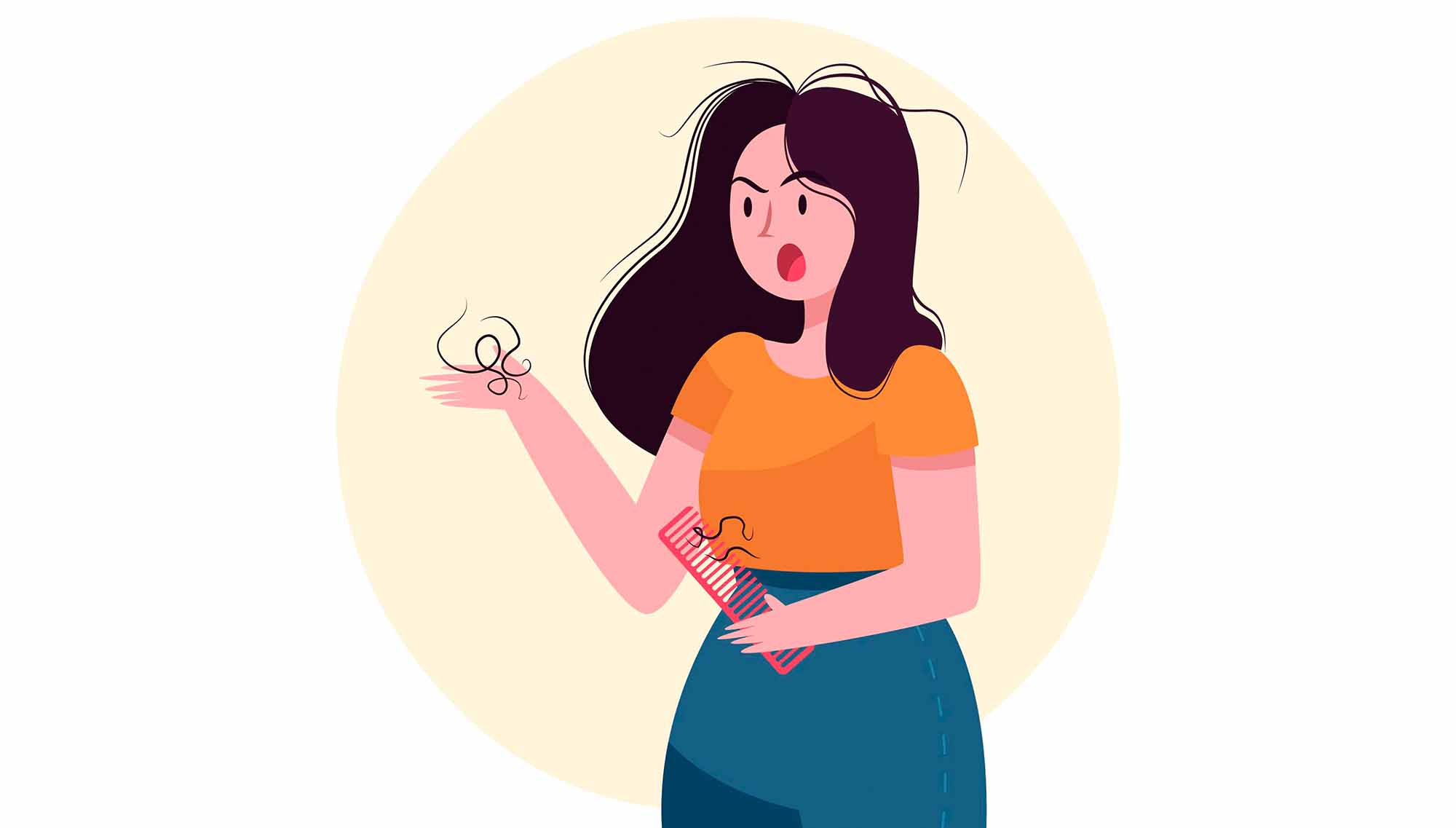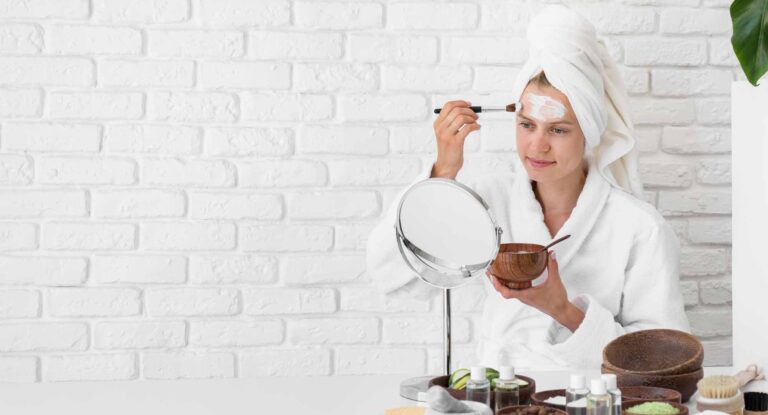Losing hair can be a distressing experience, but it’s a problem that can be tackled head-on. There are many ways to prevent hair loss and maintain a healthy head of hair. In this section, we will explore proven strategies and tips to promote hair growth and reduce the risk of hair loss. Whether you’re male or female, young or old, these tips will help you maintain a beautiful head of hair.
Key Takeaways
- Regular scalp care is essential for preventing hair loss.
- A balanced diet rich in essential nutrients can help promote healthy hair growth.
- Smoking, excessive heat styling, and harsh chemical treatments can contribute to hair loss.
- Various FDA-approved drugs and natural remedies are available to prevent hair loss.
- By combining proper hair care with a healthy lifestyle, you can maintain healthy hair for years to come.
Understanding Hair Loss Causes
Hair loss is a common concern for many people, but understanding its causes is crucial in preventing it. Genetics play a significant role in hair loss, as it can be inherited from either parent. Hormonal changes, especially during pregnancy, menopause, and thyroid imbalances, can also lead to hair loss.
Diet is another critical factor in hair health. A lack of protein or iron can result in hair loss, as can a diet high in processed and sugary foods. Stress is also a common contributor to hair loss, as it can disrupt the hair growth cycle.
Other medical conditions such as alopecia areata, scalp infections, and certain medications, including chemotherapy drugs, can also cause hair loss.
The Impact of Genetics on Hair Loss
Genetics is a key factor in determining hair loss patterns and age of onset. Male pattern baldness, for example, is a genetic condition that affects approximately 50% of men by age 50. Female pattern baldness, on the other hand, is less common and typically occurs after menopause.
The Role of Hormonal Changes
Changes in hormone levels can also impact hair health. Androgenetic alopecia, also known as male or female pattern baldness, is caused by increased levels of DHT, a hormone that affects hair follicles’ growth cycle.
The Influence of Diet on Hair Health
Eating a balanced diet with adequate protein, iron, and essential vitamins and minerals is crucial for maintaining healthy hair. A diet high in processed foods, sugar, and unhealthy fats can negatively impact hair growth and contribute to hair loss.
The Relationship Between Stress and Hair Loss
Stress can cause hair to enter the resting phase of the growth cycle and fall out prematurely. Managing stress through practices like relaxation techniques, exercise, and adequate sleep can help prevent hair loss.
“Understanding the causes of hair loss is crucial in preventing it.”
Maintaining a Healthy Scalp

A healthy scalp is necessary for healthy hair growth and preventing hair loss. Proper scalp care involves regular cleansing, moisturizing, and massage techniques to improve blood flow and promote hair growth.
Cleanse your scalp regularly
Regularly cleansing your scalp is essential, as it removes dirt, oil, and product buildup that can block hair follicles. You should wash your hair and scalp with a gentle shampoo at least twice a week, focusing on the scalp rather than the hair. Be sure to rinse your scalp thoroughly to remove all shampoo residue.
Moisturize your scalp
Keeping your scalp moisturized is also crucial, as a dry scalp can lead to itchiness and dandruff, which can damage hair follicles. You can moisturize your scalp by using a scalp oil or massaging your scalp with a natural oil, such as coconut or jojoba oil.
Massage your scalp
Massaging your scalp is a great way to promote blood circulation and stimulate hair growth. Use your fingertips to gently massage your scalp in circular motions for a few minutes every day.
Protect your scalp from damage
Avoid using harsh chemicals or heat styling tools on your hair, as they can damage both your hair and scalp. If you must use a heat styling tool, be sure to use a heat protectant spray and keep the heat setting on low. Additionally, protect your scalp from the sun by using a hat or hair sunscreen.
Summary
To maintain a healthy scalp and prevent hair loss, it’s important to follow a regular routine of scalp care. Be sure to cleanse your scalp regularly, moisturize it, massage it, and protect it from damage. By doing so, you’ll be on your way to healthier, fuller hair.
Nutritional Support for Hair Health
What you eat affects your hair health. Providing your hair with the right nutrients can help prevent hair loss and promote growth. Here are some essential nutrients for healthy hair:
| Nutrient | Food Sources |
|---|---|
| Protein | Meat, poultry, fish, beans, nuts, seeds |
| Iron | Red meat, spinach, lentils, tofu, fortified cereals |
| Vitamin C | Citrus fruits, strawberries, broccoli, peppers |
| Vitamin E | Nuts, seeds, vegetable oils, leafy greens |
| Biotin | Egg yolks, nuts, seeds, salmon, avocados |
Including these nutrients in your diet can strengthen hair follicles and promote healthy growth. Additionally, avoid crash diets and restrict your calorie intake gradually to lower the risk of hair loss.
In summary, maintaining a healthy diet rich in essential nutrients can promote hair growth and prevent hair loss. Consider incorporating these foods to strengthen and support your hair health.
Lifestyle Habits to Prevent Hair Loss
Preventing hair loss goes beyond haircare routine. Many lifestyle habits can contribute to hair loss, damaging hair follicles and causing hair thinning. Here are some tips to help you maintain a healthy, full head of hair:
Avoid smoking
Smoking is not only harmful to your health, but it can also affect your hair. Cigarette smoke contains harmful chemicals that can damage your hair follicles, leading to hair loss and thinning.
Limit heat styling
Excessive heat styling can cause serious damage to your hair, making it brittle and prone to breakage. Consider limiting how often you use styling tools like straighteners or hairdryers and always use heat protectant sprays or creams before styling.
Choose gentle hair products
Harsh chemicals found in some hair products can irritate your scalp, leading to hair loss. Opt for gentle products that contain natural ingredients and are free of sulfates, parabens, and phthalates.
Eat a balanced diet
Nutrition plays a crucial role in maintaining healthy hair. Make sure to eat a balanced diet that includes protein, iron, and biotin-rich foods like eggs, nuts, and leafy greens.
Manage stress
Stress can wreak havoc on your hair, leading to hair loss and breakage. Consider practicing relaxation techniques like meditation or yoga to manage stress and promote hair health.
By making small changes to your lifestyle habits, you can protect your hair from damage and prevent hair loss.
Topical Treatments and Medications
When it comes to preventing hair loss, topical treatments and medications are popular options to consider. From over-the-counter remedies to prescription drugs, there are various choices available that can help you maintain a healthy head of hair.
Topical Treatments
Topical treatments are applied directly to the scalp and hair to promote hair growth and prevent further loss. Some popular options include:
| Product Name | Description |
|---|---|
| Minioxidil | Also known as Rogaine. It is an FDA-approved medication that is applied to the scalp to improve hair growth. |
| Essential Oils | A combination of natural oils like lavender, peppermint, and rosemary that stimulate hair follicles and improve the overall health of your scalp. |
| Procapil | A patented formula that repairs hair follicles and enhances hair growth. |
Medications
Prescription medications are another option to consider when it comes to preventing hair loss. These drugs are available only with a doctor’s prescription and are effective in managing hair loss due to hormonal issues. Some popular options include:
- Finasteride – Also known as Propecia, it is an FDA-approved medication used to treat hair loss in men. It works by blocking the production of DHT, a hormone that causes hair loss.
- Spironolactone – It is commonly used to treat hormonal acne and is effective in treating hair loss in women caused by hormonal imbalances.
- Corticosteroids – These are anti-inflammatory drugs that are used to treat hair loss caused due to inflammation.
It’s essential to speak with your doctor before taking any medications or using any topical treatments to ensure safety and to determine which option is best for your specific needs.
Conclusion
Preventing hair loss is possible with the right strategies and techniques. By implementing a combination of proper scalp care, a balanced diet, and lifestyle adjustments, you can maintain a healthy, full head of hair for years to come.
Remember to prioritize scalp care, including regular cleansing and moisturizing, and massage techniques that promote hair growth. Also, focus on eating a nutrient-rich diet that includes foods that promote hair growth and strengthen follicles.
Avoid lifestyle habits that contribute to hair loss, such as smoking, excessive heat styling, and harsh chemical treatments. Instead, opt for healthier alternatives to protect your hair.
Finally, explore the various topical treatments and medications available for preventing hair loss. From FDA-approved drugs to natural remedies, there are many options to suit your needs.
With a bit of effort and dedication, you can maintain a healthy head of hair and prevent hair loss. Start implementing these tips and techniques today for the best results!



Effective Hair Loss Prevention Methods & Tips